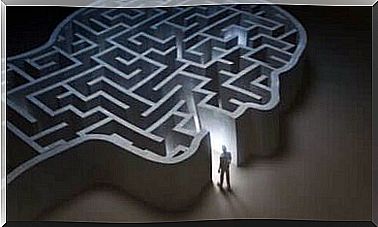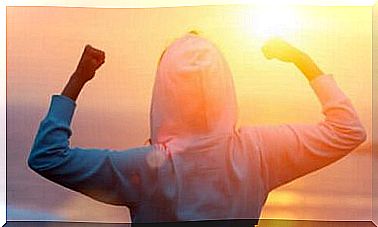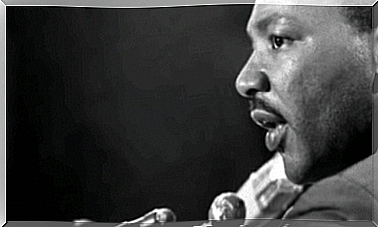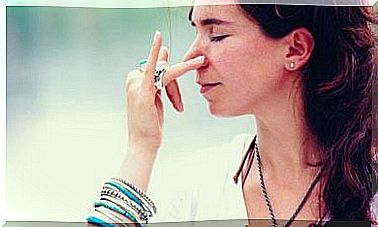Distrustful People: The Reason For Their Behavior
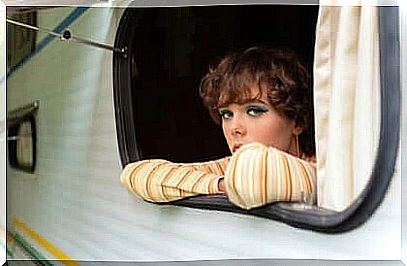
Behind suspicious people there is usually a strong insecurity. In addition, precise emotional mechanisms act that do not let them be themselves, that hinder and limit their potential. Their behavior may make us uncomfortable, but we need to understand that some people find it extremely difficult to 100% trust others.
Lack of trust is the most intense and painful form of loneliness. Those who suffer from it, those who adopt an elusive, rigid and cold behavior are not happy.
Many of these profiles are the result of deep disappointment, betrayal, abandonment, a childhood devoid of attachment and affection. When the bond with our loved ones is traumatically broken, it is extremely difficult to trust again.
As a social organ and programmed for emotional connection, the brain suffers when it does not have access to interrelation, i.e. when strong bonds are lacking, which in turn generate spaces in which we feel cared for, loved and valued. If we do not perceive this positive and above all sincere reinforcement, our insecurity will become our own executioner.
Distrustful people aren’t always suspicious by choice. They constantly live under the veil of fear because they fear being hurt again. The suspicious individual, therefore, does not hesitate to build walls around him and to remain alert so that no one crosses the boundaries of self-protection.
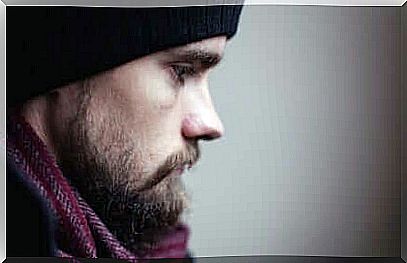
Distrustful people and the burden of negative emotions
In 1861 Charles Darwin wrote a letter to a friend; one of those very special letters that would later be published in the book Diary (1838-1881) and autobiographical writings . In it Darwin literally said the following: “Today I feel very bad, I feel stupid and I hate everyone.” This sentence, almost like a childish whim, was filled with anger, resentment and frustration. Aspects that would later be analyzed by Darwin himself.
Recall that the famous naturalist and father of the theory of human evolution was very curious about the world of emotions. He wrote this sentence because he felt betrayed by a colleague. He had lost faith in someone and felt hurt. That pain translated into intense negative emotions that accompanied him for months.
Following a study conducted at the University of Amsterdam and the University of Zurich, evidence was found to support an idea related to what Darwin had experienced many years earlier. Neurologist Jan Engelmann described the neural mechanism that seems to define suspicious people.
According to this work, some people chronic negative emotions that arise from a disappointment or betrayal; this constant fear maintains the distrust of the person.
Amygdala: the sentinel of fear
When a person lives on his skin the weight of lies, disappointments, abandonment or betrayal, he fears above all else to find himself in the same situation.
It is true that there are also those who face and manage these situations effectively; individuals capable of learning from what happened, who do not stagnate in pessimism. They accept what has happened, turn the page and open up to other experiences.
On the contrary, others cling to the weight of negativity, that “I feel stupid and I hate everyone” that Darwin expressed in his day. This situation is mediated by a specific brain structure: the amygdala.
It is the amygdala that condemns distrustful people to a state of constant hypervigilance. These people almost automatically begin to associate any detail with a threat.
They apply categorizations, they make use of prejudices and an internal dialogue so limiting and negative that they end up “intoxicated” by their own anguish and extreme distrust. It is not at all easy to live like this, in this territory of absolute unhappiness.

How can we trust others again?
Distrustful people are often trapped in an agonizing vicious circle. They are unable to trust others, not even those who are part of their everyday life. In turn, their approach and behavior generate rejection around them. Seeing others move away further increases their discomfort and strengthens the desire to isolate themselves, to protect themselves.
What can be done in these cases? If we reflect ourselves in this profile, what can we do to authentically reconnect with those around us? The answer is simple to say and complex to realize: before we trust others, we must trust ourselves.
It is not an outside job, it is not about improving our social skills, our sympathy or our charisma. It is about connecting with your inner self, with that neglected self-esteem and the sign of that disappointment or wound of the past that lives in us.
It is a tiring job that allows us to regain possession of our identity, to value ourselves in all senses and, above all, to feel worthy of living a forgotten happiness.
Only when we recover the connection with ourselves, feeling strong and safe, will we tear down those walls that surround us and allow others to enter. And we will do it without fear, knowing that trust in oneself and in others is the secret that makes life easier and more enjoyable.

